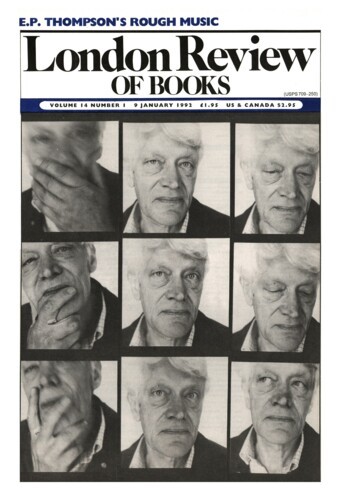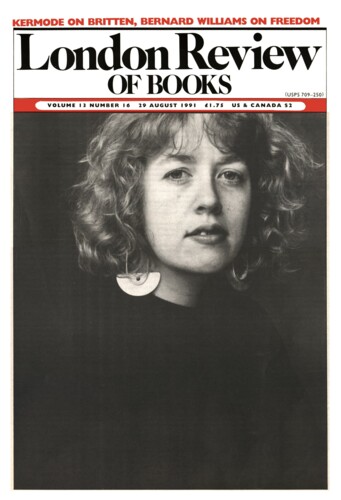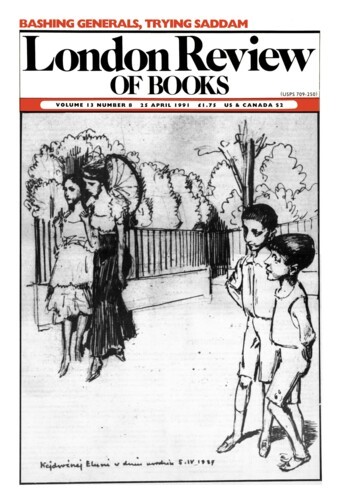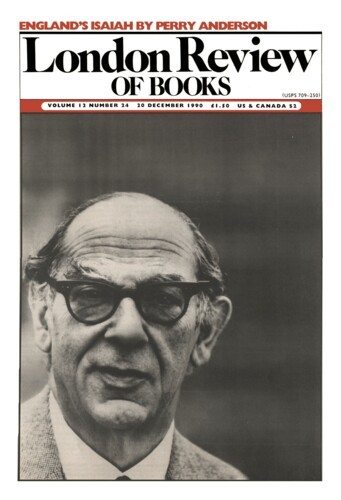John Homer’s Odyssey
Claude Rawson, 9 January 1992
Edward Thompson’s Customs in Common is described as a ‘companion volume’ to his The Making of the English Working Class, and rises to the occasion. It has the wide range of reference, the densely-textured documentation, a special quality of charged impressionism (sometimes tendentious, more often honourably concerned with generous perspectives and panoramic insight), the embattled moral fervour, which established the earlier book as a classic of historical scholarship and indeed of English letters. It has some occasional irritants, an overheated self-concern, a raw sense of personal slight, a dogged self-indulgence which, as at pp. 302-303, will make a bad joke, apologise for it in a note, thank a reader of the manuscript for pointing it out, keep it in for the sake of the reader’s comment, and tell you he’s doing all this and why. These are a small price to pay.




